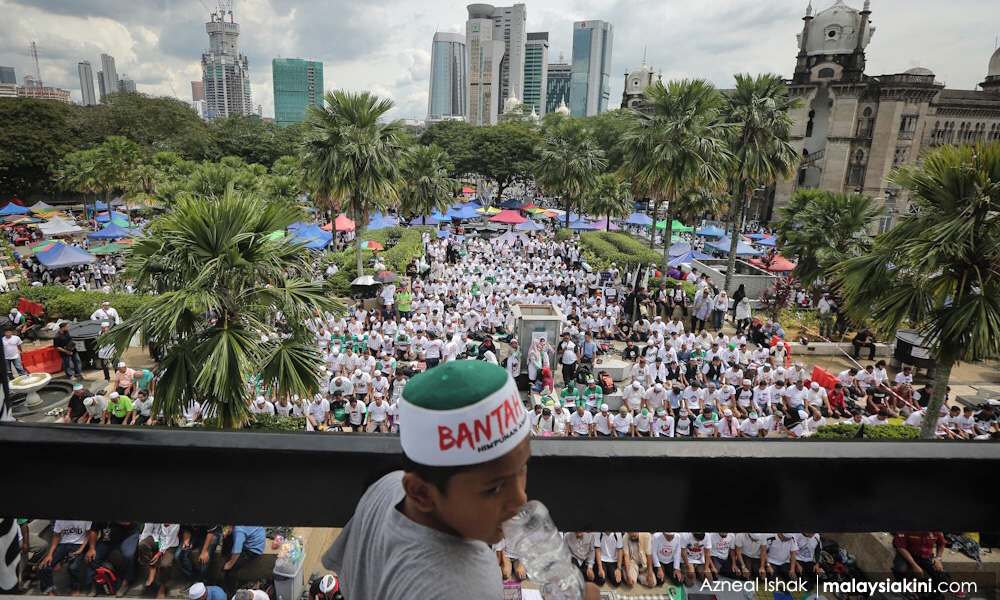
SPECIAL REPORT | You’re not imagining it – discussions on race, religion and royalty have increased under Pakatan Harapan’s rule, data analysed by Malaysiakini shows.
An analysis of the parliamentary Hansard showed that keywords related to race, religion and royalty (3R topics) were used 88 percent more in Dewan Rakyat debates in the first year of Pakatan Harapan’s rule, compared to the year before.
This means keywords related to the 3R topics were mentioned close to double the number of times in the Dewan Rakyat since Harapan has been in power, compared to the year before.
Keywords related to the 3R topics were mentioned 8,087 times in the Dewan Rakyat during sessions that took place in the first year of Pakatan Harapan’s rule, compared to 4,292 times the year before.
Dewan Rakyat debates are closely watched by the media, and make news reports.
Correspondingly, there was an increase in the use of the same keywords in news reports published on the English and Bahasa Malaysia (BM) pages of Malaysiakini over the same period.
There was an 11.8 percent growth on the Malaysiakini English page while the Bahasa Malaysia page recorded a 36.6 percent growth.
The keywords are: 'Religion', 'Islam', 'Race', 'Malay', 'non-Malay', 'Ruler', 'Agong', 'Sultan', 'UEC', 'Article 153', 'Rome Statute' and 'Icerd'.
BM translations of the keywords are used where needed for analysis of the Hansard and Malay-language news articles.
BM translations of the keywords are used where needed for analysis of the Hansard and Malay-language news articles.
Double the frequency
Of the keywords analysed, those related to religion were featured the most in the Hansard and Malaysiakini pages, both before and after the 14th general election.
The words ‘agama’ and ‘Islam’ were used 2,493 times in the one year before GE14 and 3,627 times in the first year of Harapan’s rule – a 45 percent hike.
However, keywords related to race and royalty more than doubled in frequency in the same period.
Keywords related to race - ‘Melayu’, ‘Bangsa’ - were used 134 percent more times compared to the year before, while keywords related to royalty - ‘raja’, ‘sultan’, ‘Agong’ - were used 168 percent more times.
Newspapers reflect the same trend
The same analysis was conducted on reports published in the print editions of newspapers Utusan Malaysia, Sinchew Daily, and The Star (Chinese translations of the keywords were used for Sin Chew).
Due to constraints in obtaining data, this analysis was performed on these newspapers only for the first 11 months of Harapan’s rule.
This meant it was not possible to compare coverage by the newspapers before and after GE14.
However, when placed next to data from Malaysiakini’s English and BM pages, the trend for the newspapers were almost identical.
This indicates that similar to Malaysiakini, these newspapers are likely to have seen a growth in the use of keywords related to race, religion and royalty after Harapan came into power.
Spikes related to key events
A look into when these keywords were used the most may paint a clearer picture.
Spikes in the use of these keywords correspond to several events.
For example, there was a marked climb in the use of these keywords in reports published by Malaysiakini in the lead-up to GE14 in May 2018.
Spikes also correspond to other key events, such Umno’s party election in July 2018, Bersatu’s annual general assembly in January 2019 and when the government faced public pressure over the ratification of the International Convention on the Elimination of All Forms of Racial Discrimination (Icerd) in November 2018.
Both Umno and Bersatu are Malay-based parties, while Icerd was opposed by right-wing Malay conservative groups that believed it undermines the race-based affirmative action enjoyed by Malays.
In the Hansard, the 3R topics hogged debates immediately after GE14, during the first sitting after the polls, in July 2018.
The use of keywords related to the 3R topics nearly quadrupled compared with the sitting that took place a year earlier, in July 2017.
Umno-PAS pact
However, more significant is the finding that the 3R keywords were most often used during the March-April 2019 sitting – the same time when Umno and PAS declared their cooperation.
Looking into the hundreds of pages of the Hansard reveals that MPs had repeatedly taken Pakatan Harapan to task for allegedly failing to safeguard the position of Malays and Islam.
In opening the sitting, Yang di-Pertuan Agong Sultan Abdullah Ri'ayatuddin Al-Mustafa Billah Shah urged for unity beyond sloganeering and for action to be taken against those who threaten unity.
He also said all citizens must “fully understand Islam’s position as the religion of the federation”, that all other religions must be respected and that Malaysia must be a model multiracial Islamic nation.
MPs latched onto this portion of the Agong’s speech to attack Harapan during debates on the royal address.
This was the context in which the words ‘agama’ and ‘Islam’ were mostly used by Opposition Leader Ismail Sabri when he debated the royal address.
In those instances, Ismail asserted that Islam has been maligned, that there have been provocations against Muslims, and that Harapan has been “weak” in safeguarding Islam’s sanctity.
MPs from PAS and Umno were also recorded lambasting the Harapan government for the same by citing examples like the presence of pro-LGBT rights activists at a Women’s Day March in Kuala Lumpur.
Manufactured narrative?
Commenting on the findings, political scientist Jeneri Amri from Universiti Malaysia Sarawak said the numbers reflect what he believes is a strategy by the two opposition parties to manufacture unhappiness among Malay voters.
“This is related to the efforts by opposition parties PAS and Umno to build a narrative and create a perception among Malays that Pakatan Harapan does not place importance on ‘Malay issues’, Islam and the royal institution.
“These issues are very close to the Malay community. If they give the impression that Pakatan Harapan doesn’t care about these issues, this is negative towards Pakatan Harapan and boosts Umno and PAS at a time where they are cooperating with each other,” Jeneri said.
GE14 setting the stage
Political scientist Wong Chin Huat agreed that the onslaught of discussions on the 3R issues was manufactured so that electoral bases and middle-ground Malays would feel threatened and solidly rally behind Umno and PAS.
In a way, the Sunway University academician said, the protracted onslaught of discussions of the 3R topic is the second act of the GE14.
Of the 117 parliamentary constituencies with a majority of Malay voters contested in GE14, 73 of them were won either by BN or Harapan with less than half of the votes.
This makes the Malay ground the real battleground for the next general election.
At the same time, in 30 Peninsular Malaysia constituencies, BN and PAS votes combined were higher than votes won by Harapan.
This means that even without a vote swing in GE15, an Umno-PAS alliance can pick up 30 extra seats by making sure its supporters vote PAS or Umno candidates, Wong said.
However, even though the Umno-PAS alliance is politically expedient, it is a hard sell for hardcore supporters because of the two parties’ long history of animosity, he said.
“To close ranks, they need an enemy. Their electoral bases and middle-ground Malays would need to feel threatened to solidly rally behind the new Umno-PAS pact,” Wong said.
He said this was evident when the Rome Statute issue was framed along ethnic lines as a threat to Malay rulers, although the BN government before this, too, had wanted to sign the treaty.
In March, the government buckled against public pressure and withdrew from the treaty, which establishes the jurisdiction, function and structure of the International Criminal Court.
‘A dangerous path’
Jeneri believes this would be the mainstay for now, as both sides of the political divide will try to prove that they are champions of Malay issues.
“It’s regressive. We are moving backwards at a time when our politics should be maturing under New Malaysia – to go beyond these 3R issues and talk about building a nation-state, socioeconomic issues and unity.
“It is also dangerous because it not only causes more divides within society but also encourages more racist sentiments,” he said.
While this strategy is politically expedient, it is unlikely to benefit the country in the long run as it could cause more divisions, racism and block the path towards political maturity.
“The solution is for Pakatan Harapan, Umno and PAS to be more responsible and stop playing up sentiments. They may gain politically but it will not benefit the nation in the long run.
“The rakyat must also be more cautious not to get caught in this political game and be manipulated to use these issues,” Jeneri said. - Mkini


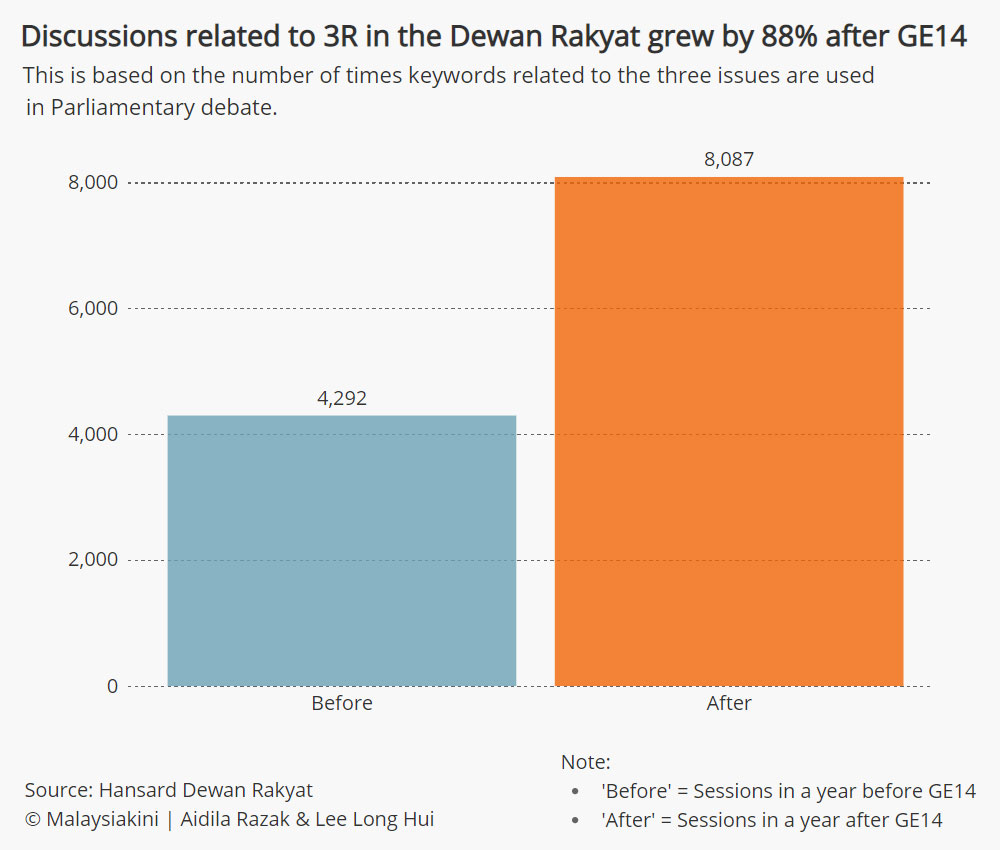
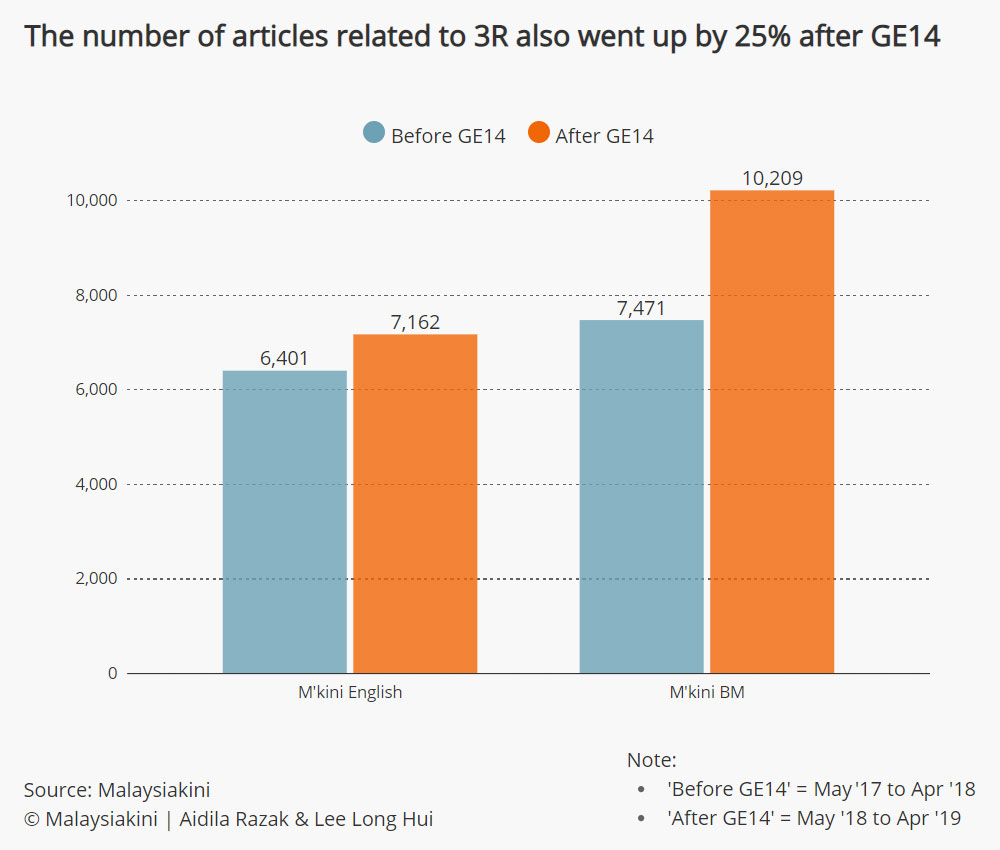
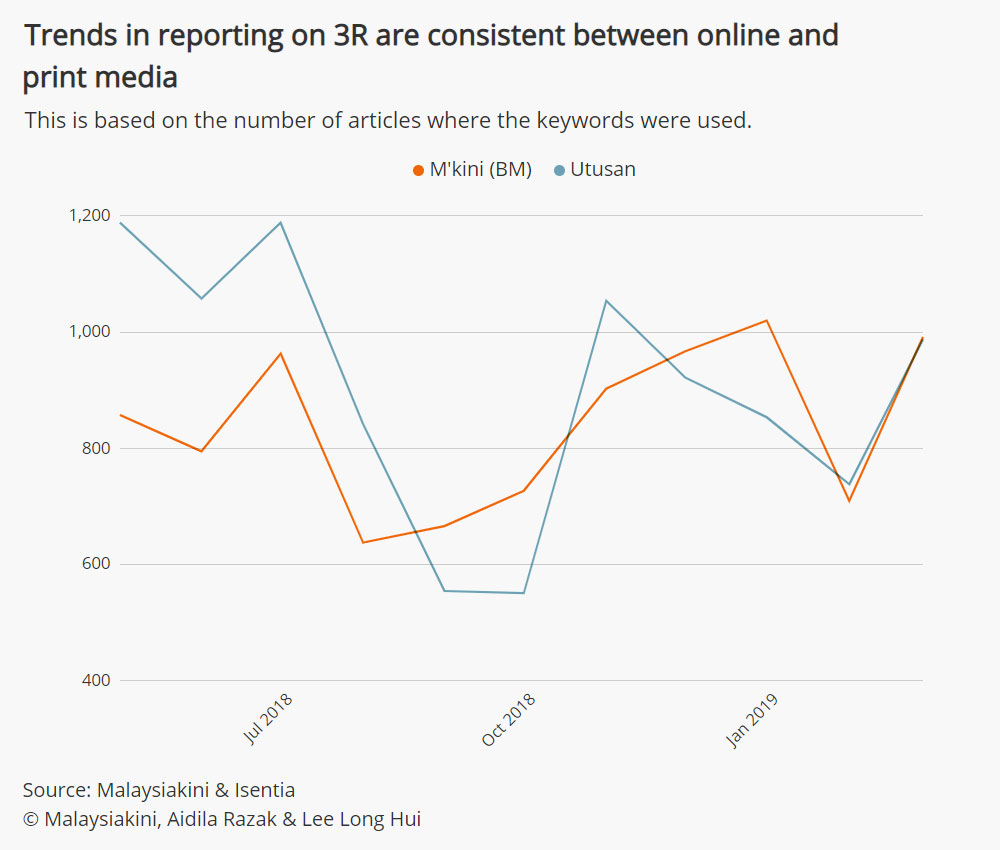
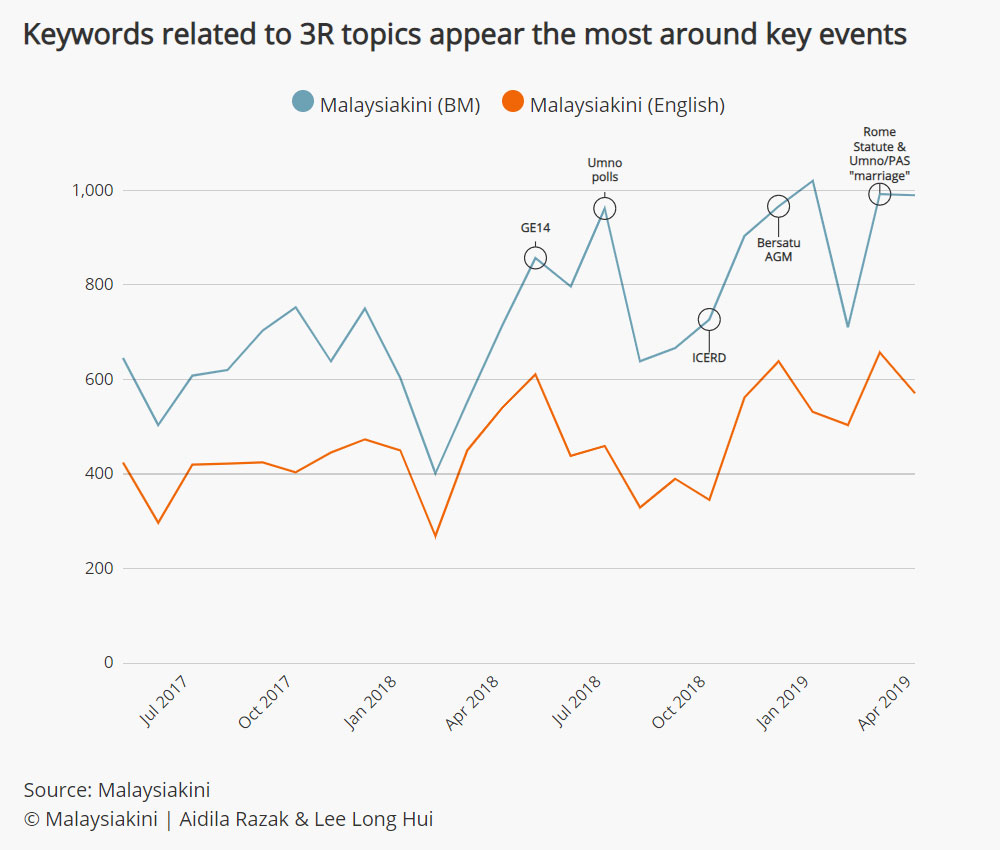
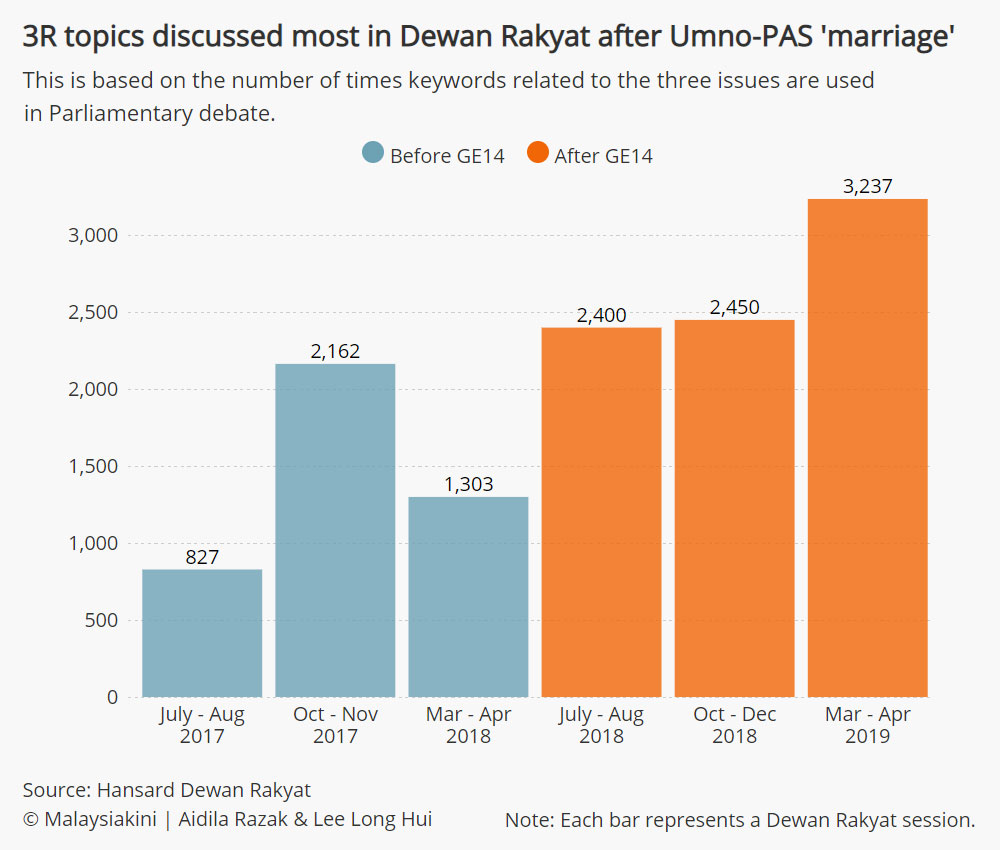
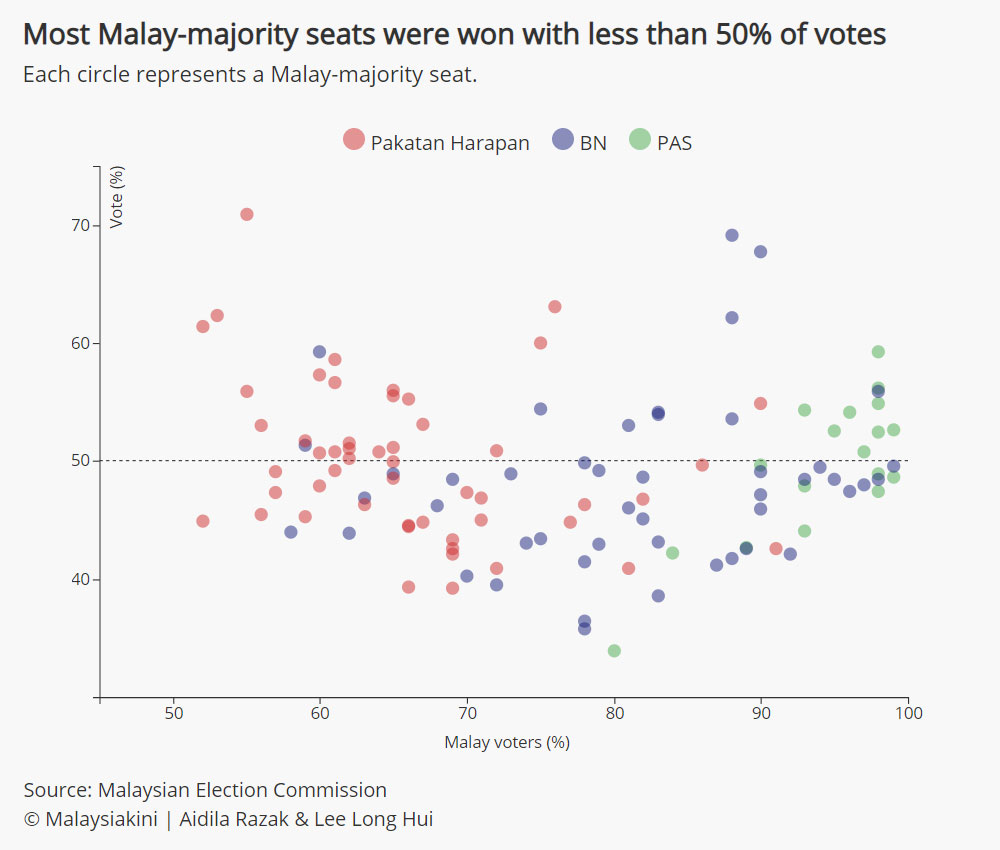
No comments:
Post a Comment
Note: Only a member of this blog may post a comment.